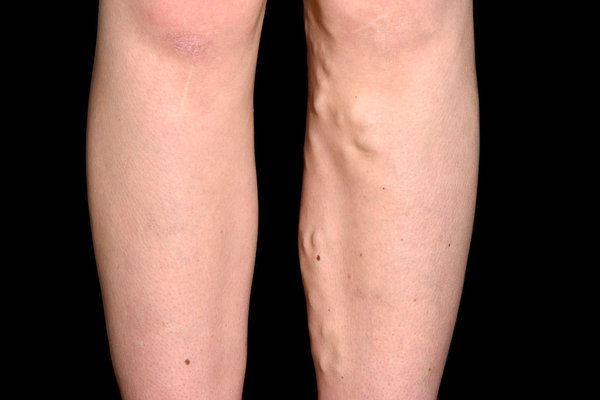
Varicose veins are a common condition that can cause discomfort, swelling, and aching in the legs. While treatment options exist, prevention and lifestyle management are equally important. You can take control of your varicose vein symptoms by adopting a few simple habits.
Some things it may be helpful to avoid if you suffer from this problem include:
- Tight clothing
- Heels
- Inactivity
- Excess salt
- Dehydration
- Lots of standing
Let’s take a closer look at how each of these can impact your veins and what you can do instead.
1. Tight Clothing
It’s time to ditch the skinny jeans, tight tights, and figure-hugging sportswear if you have varicose veins. Even long boots could cause problems!
This is because tight clothing restricts blood flow, particularly to the lower limbs. It also puts pressure on the veins, which may make the condition worse or, at the very least, cause discomfort.
Revamp your wardrobe with loose, flowy styles. Fortunately, current fashion trends favor these kinds of outfits — think puffed sleeves, linen trousers, and oversized sweatshirts.
Self-care tip: Try some simple leg stretches to improve circulation and give your veins a gentle boost.
2. Heels
Heels are another fashion choice best avoided if you’re dealing with varicose veins.
They can hinder blood flow, especially if they’re tight or have pointed toes that squeeze your feet together. The elevated angle of heels also causes your leg muscles to contract, making it harder for blood to flow back through your veins. This leads to blood pooling in the lower legs — worsening varicose vein symptoms or even triggering them in the first place.
Sticking to flat, comfortable shoes eliminates this risk. Trendy alternatives include chunky boots, Mary Janes, and loafers.
3. Inactivity
Maybe you spend too long watching TV or sitting at your desk for hours — you’re not alone. Around 20 million people in the UK are classified as inactive.
Lack of movement restricts circulation and can worsen vein health. When you sit for extended periods, especially with crossed legs, blood flow is slowed even further, increasing the likelihood of varicose veins.
To combat this:
- Take short movement breaks every hour.
- Stand up, walk around, or do some light stretching.
- If you work at a desk, consider a standing desk or under-desk stepper for gentle motion.
Regular movement keeps blood flowing and helps reduce vein pressure.
4. Excess Salt
If you have varicose veins, it’s best to avoid excess salt.
High salt intake leads to high blood pressure, making blood thicker and harder to pump around the body. This puts additional strain on the veins.
Watch out for these high-salt foods:
- Processed foods and ready meals
- Flavored snacks like popcorn, crisps, or chickpeas
- “Healthy” snacks such as granola or cereal bars
Instead, make your own healthy snacks at home. Try recipes like peanut butter muesli bars or cranberry granola bars to satisfy your cravings without overloading on sodium.
5. Dehydration
Are you drinking 1.5–2 liters of water per day? If not, your circulation — and your veins — could be suffering.
Proper hydration helps veins stay flexible and blood circulate smoothly. Dehydration can lead to swelling, cramps, and discomfort in the legs — all of which can aggravate varicose veins.
To stay hydrated:
- Keep fizzy drinks for special occasions.
- Flavor water naturally with lemon, orange, or mint.
- Remember that coffee and tea don’t count toward your water intake.
A well-hydrated body supports healthy circulation and reduces vein strain.
6. Lots of Standing
Standing for long hours can also make varicose veins worse.
When you’re upright for extended periods, your blood has to fight against gravity to move upward. This can cause blood to pool in the veins, leading to increased swelling and discomfort.
If your job requires long hours on your feet:
- Use your breaks to sit down and rest your legs.
- Avoid using break time to do chores or errands.
- Try gentle stretches or ankle rotations while standing to improve blood flow.
Small movements can make a big difference in preventing vein pressure and fatigue.
Final Thoughts
Varicose veins can worsen over time if left unmanaged, but simple lifestyle adjustments can help you stay in control. By avoiding tight clothes, high heels, inactivity, salty foods, dehydration, and prolonged standing, you can protect your veins and reduce discomfort.
Making these small changes today can go a long way in improving your circulation and keeping your legs healthier for the future.




